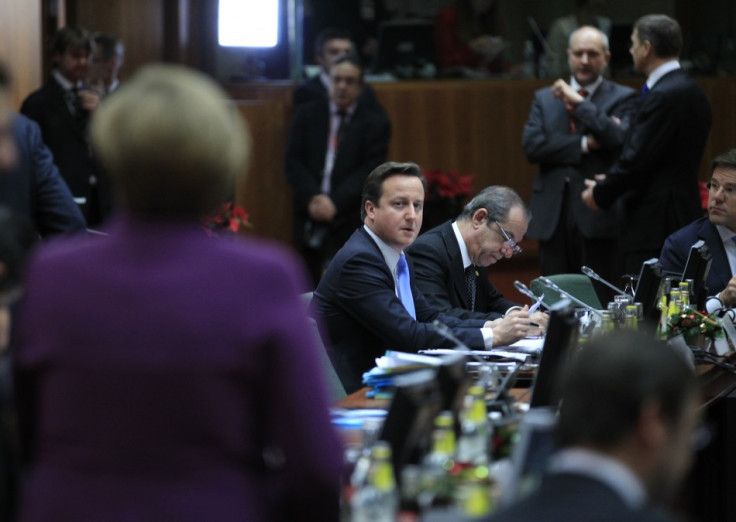EU Summit: Confusion Reigns Over Veto

The prime minister, David Cameron, was due to meet EU leaders for the first time since he controversially vetoed a new treaty during December's summit, forcing the eurozone nations to create a pact to form a fiscal union.
Since then, it has remained unclear whether the new pact will be able to use the EU's institutions, which include the European Courts of Justice and the EU Commission.
Foreign Secretary William Hague told the Today programme on BBC Radio 4 that the UK would not formally veto use of the EU institutions by the fiscal group.
"This group cannot cut across the EU treaties," he said.
"If the use of the EU treaties at any point threatens Britain's fundamental rights under the EU treaties, or damages our vital interests such as the single market, then we would have to take action about that, including legal action.
"We will reserve our position on the specific question about the use of the court," he added.
Labour's shadow foreign secretary, Douglas Alexander, said: "William Hague's comments make David Cameron's decision to walk away from the negotiations last month even less understandable.
"It has made it harder for him to push for a solution to the eurozone's problems and get a deal that boosts jobs and growth in Britain."
Growth Agenda
Cameron has been putting pressure on the eurozone to sort out its finances as soon as possible, saying that the disastrous fiscal situation on the continent is having a "chilling effect" on the UK economy.
A Downing Street spokesman said Cameron's meeting should concentrate on how the EU can support economic growth across the continent and set specific targets to liberalise EU trade with other markets and to reduce the burden of EU regulation on business.
EU leaders were expected to warn that efforts to restore financial stability in the eurozone have proven insufficient.
© Copyright IBTimes 2025. All rights reserved.




















